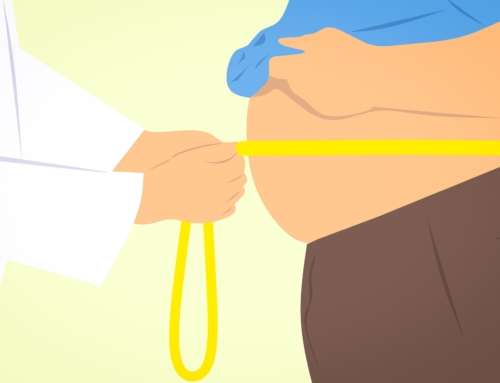Hyperthyroid misdiagnosed as anxiety
I have seen three people in the last few months that were told they were having panic attacks with high anxiety when they were actually hyperthyroid and were having a thyroid storm! All three of my patients that had thyroid storms described themselves as being non-anxious people. They were unaware of any symptoms until it hit them suddenly. In retrospect, when asked the right questions they realized they had been having a multitude of the soft hyperthyroid symptoms leading up to their full blown “storm”. All three were told they were having panic attacks and were recommended to start anti-depressants which of course didn’t work because it wasn’t a panic attack!!
There is nothing worse than suddenly, out of nowhere, feeling like you are out of control with your heart racing, sweating, & can’t sleep. Hyperthyroid can present with the same symptoms of a panic attack. Obviously, not all panic attacks or anxiety is from a thyroid condition but it is important to be worked up for it just to rule it out.
Let’s review signs and symptoms of thyroid disorders so you can at least have this on your radar. READ ON to learn more…
The term, hyperthyroid, means that the thyroid gland is producing too much thyroid hormone. Often it comes on slowly and will gradually build until the symptoms get full blown. Full thyroid storms will seem to come on suddenly with heightened symptoms.
Here are some of the symptoms associated with hyperthyroidism:
- Unintentional weight loss (appetite might be increased or decreased)
- Rapid heartbeat
- Irregular heartbeat
- Nervousness, anxiety
- Tremor (especially of your hands)
- Sweating
- Increased sensitivity to heat
- Fatigue
- Muscle weakness
- Trouble sleeping
- Hair changes/loss
Hyperthyroid conditions are often associated with thyroid antibodies: thyroid peroxidase and thyroglobulin. A rarer form of hyperthyroid issues is Grave’s disease which has elevated thyroid stimulating antibodies. Signs of Grave’s disease often present with eye issues rather than the typical hyperthyroid symptoms and include:
- Protruding eyeballs
- Red or swollen eyes
- New onset of light sensitivity
- Double vision
Thyroid nodules are often the cause of producing too many thyroid hormones and inflammation of the thyroid (thyroiditis) is often found when dealing with hyperthyroid conditions. I suspect some day we will discover that there is a virus or bacteria that has attacked our thyroid gland as the ultimate cause but for now we can only hypothesize this because there are really no good tests to figure this out.
Treatment of hyperthyroidism depends on the severity of the elevation of the thyroid hormones. Grave’s disease requires immediate evaluation and treatment while the other forms are often treated more conservatively.
For mild cases, physician’s often wait to see if the thyroid will “burn out” and the thyroid levels go back down. The reason for this is there are some risks to treatment with the medications as well as radioactive iodine. I have found several supplements to really help blunt the thyroid hormone response while people are in this watch and wait stage.
For moderate to severe cases, medication like Methimazole are often started but will take at least 4 weeks to start working (so the supplements I use are often really helpful in these cases, too). Rarely, radioactive iodine or removal of a hot nodule are recommended but it is not usually a first line treatment. Caution has to be exercised with removing the thyroid or nodules with high thyroid numbers because of the risk of a thyroid crisis.
Here are the blood tests to check if you think you are hyperthyroid:
Physicians often only check a TSH but this will miss mild cases. I recommend the following tests:
TSH
Free T3
Free T4
Thyroglobulin antibodies
Thyroid peroxidase antibodies
Thyroid Stimulating antibodies (only if there is eye involvement)
Most people with hyperthyroidism will have their thyroid levels come back to normal over a period of time. Some faster than others. Often when it does burn out, it results in hypothyroidism requiring thyroid medications so once you have a hyperthyroid diagnosis you need to be monitored frequently for this shift.
To your health,
Laura









